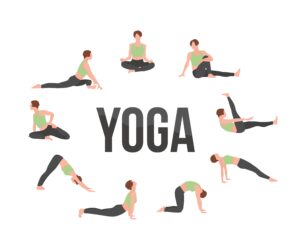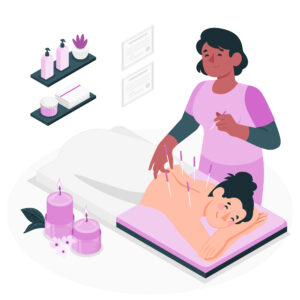Asthma is a chronic respiratory disease that can cause you shortness of breath, wheezing, and coughing.
Asthma attacks cause your airways to swell and congest, which blocks mucus and further causes coughing and chest tightness.
Although mostly, inhalers are used to manage one’s asthma but more and more people are also looking for a natural remedy for asthma.
So if you’re curious to find a natural remedy to manage your asthma, read on.
What to do for Asthma Attack Without Inhaler
Natural Remedies for Asthma
Let’s talk about some natural remedies for asthma that can help your asthma without an inhaler.
1. Nutrition and diet.
Be conscious of the foods you eat, because eating right is really important.
- Eat a good mix of fruits and vegetables. Some nutrients are really beneficial to control your asthma. Beta-carotene and vitamins C, D, and E can reduce inflammation in your airways.
- Omega-3-rich foods like salmon and flaxseeds can also soothe the airway and make the swelling go down.
- Honey and ginger have anti-inflammatory and antioxidant powers. You can mix a teaspoon of honey into grated ginger and take it, it can calm breathing.
- Probiotics can help ease inflammation as well. In a study, researchers found that when people used probiotics along with their regular asthma treatments, it made their asthma less severe. Yogurt, kimchi, miso, and kombucha are some healthy probiotics.
- Caffeine opens your airways and eases respiratory muscle fatigue. A study shows that having 0.5 to 3 daily cups of coffee or tea can reduce adult-onset asthma risks.
- Herbal tea, like ginger, is a natural tea that helps with asthma. It calms the airways and symptoms. These teas can be a soothing and natural remedy for asthma.
If you think some foods are worsening your asthma, please avoid them. You might have food allergies that are triggering your asthma symptoms.
Talk about this with your doctor to make sure.
2.Breathing exercises.

Like diaphragmatic breathing, deep breathing and relaxation methods can improve lung function and reduce asthma symptoms.
Although Buteyko breathing doesn’t treat asthma, it helps improve your breathing pattern through slow, gradual breathing.
During an asthma attack, these exercises can help you breathe better.
3.Yoga.

Yoga helps with asthma. It helps you breathe better, reduces stress (which can lead to asthma), strengthens your lungs, and helps keep you upright.
Studies have shown that people who practice yoga have a lower risk of asthma and breathe better.
4.Weight loss.
Obesity can trigger asthma.
Losing weight can help improve lung function, reduce your risk of asthma-causing conditions, and make exercise easier.
5. Acupuncture.

Acupuncture is a traditional Chinese practice where thin needles are attached to some parts of your body.
Acupuncture gives asthma relief when it comes to the symptoms.
Some people think it helps them but there’s no solid evidence that it can actually cure asthma.
6. Salt therapy.
In salt therapy, there are special rooms with salt-infused air. It can be beneficial to spend time in these rooms because you’re able to breathe in respiratory particles that can help.
Some people find relief from their asthma symptoms through this therapy because it eases inflammation and also clears mucus.
Please find out more information about natural asthma remedies at home.
What To Do In the Moment
Knowing the first aid for an asthma attack at home or anywhere is important. This is how to relieve asthma symptoms without an inhaler:
Stay calm.

Stay calm and breathe slowly, gently and deeply. Try not to panic because it can only intensify your symptoms.
Sit up straight.

Find a comfortable place to sit upright. When you sit like this, it can help keep your airways open and make you breathe easier.
Relax and breathe.

Breathe slowly and deeply. Breathe in through your nose and exhale through your mouth–this relieves hyperventilation and improves breathing.
Drink water.

Drink a sip of water to keep your respiratory tract moist. Keep away from cold or sugary drinks because they can aggravate asthma.
Avoid the triggers.
These can trigger asthma: Pollen, dust, mold, pet dander, cold air, smoke, certain medications, stress, and food preservatives.
Try relaxation methods.
Try deep breathing and meditation to calm your anxiety.
Get medical help.
Call emergency medical care if symptoms don’t go away.
Get professional help during an acute asthma attack.
To Conclude
There are ways to manage asthma without an inhaler, even when you don’t have one on hand, although it takes really careful planning and guidance from healthcare experts.
The natural remedies and strategies we talked about above can be helpful; they should be used alongside your asthma treatment.
Care for your health and wellness, and discuss with your healthcare provider to find the best plan for your asthma—the one that help you out the most.
If you have any questions or need advice or treatment, contact us at Primary Care of Kansas
FAQs
How to cure asthma attacks without an inhaler?
Asthma isn’t completely curable and can be chronic, but it can be managed using prescription and natural remedies. Work with your doctor to develop an asthma plan.
What are some home remedies for asthma?
Home remedies to manage your asthma are:
Do some breathing exercises.
Inhale steam.
Manage your stress.
Eat healthy meals with proper nutrients.
Avoid your asthma triggers.
Stay at a normal, healthy weight.
Get proper rest and a good night’s sleep.
If you’re newly diagnosed with asthma, it’d be beneficial to follow these. You can also discuss your plan with your doctor
What is asthma self-care?
Asthma self-care can look like:
Keeping a diary and tracking your symptoms.
Taking prescribed medication as directed and making healthy lifestyle changes.
Can I use home oxygen for asthma at home without a prescription?
No, home oxygen treatment for asthma should only be used with a doctor’s prescription.
What is the best herb for asthma?
Ginger and turmeric are good for asthma, and they can reduce inflammation and ease asthma symptoms.
It’s important to discuss this with your doctor before taking any herbs though.
Does hot tea for asthma work?
Yes, tea can ease some asthma symptoms. The tea’s warmth and steam can help open airways and ease breathing.
Some of these herbal teas can help:
Ginger tea.
Green tea.
Black tea.
Licorice tea.
Eucalyptus tea.
Peppermint tea.
Fennel tea.
Talk to your doctor about which is best for you to ensure you don’t get any side effects.
Is there a healthy juice recipe for asthma?
Some juice recipes can benefit asthma patients. The ones include non-inflammatory ingredients like ginger and turmeric and fruits high in vitamin C, like orange.
Does asthma show on a CT scan?
Asthma is not visible on a CT scan but can help rule out other lung disorders that mimic asthma.
Is an asthma chest X-ray a standard diagnostic test?
No, an asthma chest X-ray is not a primary diagnostic test. Asthma is mainly diagnosed through clinical assessment, medical history, and lung function tests.


No comment